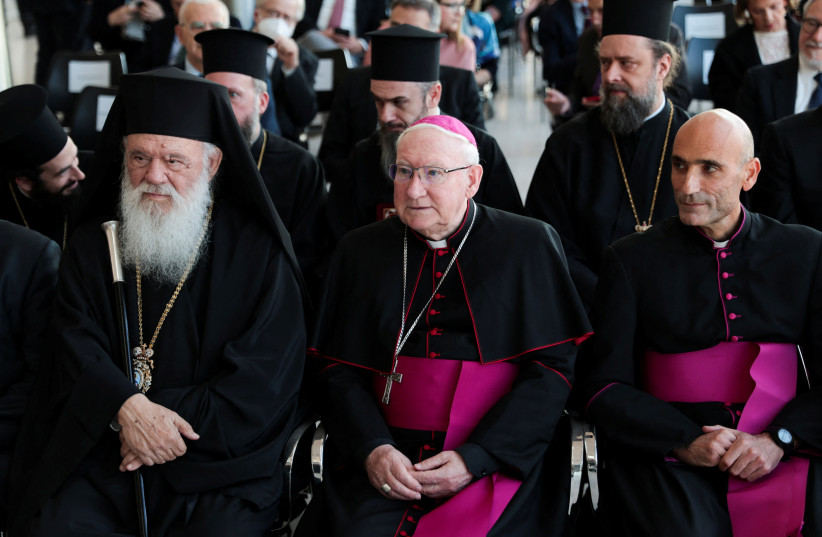The return of three 2,500-year-old marble pieces of statues that once adorned the Parthenon in Greece's capital of Athens was celebrated in a ceremony on Friday.
The event, held in the new home of the marble pieces, the Acropolis Museum, was led by Greece's Culture Minister Linda Mendoni, the leader of the Greek Orthodox Church Archbishop Ieronymos II. and the Vatican secretary for promoting Christian unity, Bishop Brian Farrell, according to Deutsche Welle.
According to the Vatican Museums website, one piece returned to Greece is the head of the horse that was depicted pulling Athena's chariot on the west side of the building. The others are from the head of a boy and the head of a bearded male, respectively.
This act by Pope Francis is of historical significance and has a positive impact on all levels
Archbishop Ieronymos II.
The dignitaries exchanged handshakes and smiled for the cameras, but also called to return the rest of the sculptures. "This act by Pope Francis is of historical significance and has a positive impact on all levels… We hope it sets an example for others," Archbishop Ieronymos II said.
The return of the marble shards that had been stored in Vatican museums for centuries was announced by Pope Francis last year, the BBC had reported.

In his address at the signing ceremony a few weeks ago, the governor of Vatican City, Cardinal Fernando Vergez, said the three pieces were acquired by the papacy "correctly" at the start of the 19th century.
"The gifting of fragments of the Parthenon which had been held in the Vatican Museums for more than two centuries shows itself as a cultural and social gesture of friendship and solidarity with the people of Greece," Bishop Farrell said.
Calls grow for British Museum to return sculptures
About 50% of the original sculptures that once adorned the Parthenon building survived to the present day, half of them now residing in the British Museum in London.
"The ceremony today... similar to the gesture by the government of Sicily and the Republic of Italy a few months ago, shows the road that we could follow, that everyone could follow, in order for the unity of the Parthenon to be restored," Greece's culture minister Linda Mendoni added.
Greece "cannot recognize possession and ownership by the British Museum because it considers the sculptures to be there as a product of theft," Mendoni said.
The sculptures that are now in the British Museum were taken to Britain by diplomat Lord Elgin in the 19th century, before the Greek independence from the Ottoman Empire.
Greece has been calling for the return of the sculptures from London for years, arguing that they are part of the country's heritage.
Mendoni proposed that Greece could lend the British Museum other ancient Greek artifacts to "fill the gap" if the Parthenon fragments were returned, because of a legal question over recognition either of ownership or exchange in any possible accord.
The Vatican had circumvented the issue by describing its gesture as an "ecumenical donation" to Greece and its Orthodox Church.
Reuters contributed to this report.
